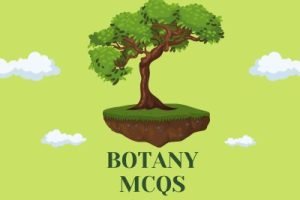MCQs on Immunity
MCQs on Immunity
1. Which of the following systems protects our body against disease-causing microbes?
(a) Immune system
(b) Digestive system
(c) Excretory system
(d) Respiratory system
Sol: (a) Immune system.
2. Which of the following immunity is present from our birth?
(a) Innate Immunity
(b) Active immunity
(c) Passive immunity
(d) Acquired immunity
Sol: (a) Innate Immunity
3. Neutrophils, basophil, lymphocytes, eosinophil and monocytes are examples of ________.
(a) Physical barrier
(b) Cellular barriers
(c) Cytokine barriers
(d) Physiological barriers
Sol: (b) Cellular barriers.
4. B-cells and T-cells are two types of cells involved in _______________.
(a) Innate Immunity
(b) Active immunity
(c) Passive immunity
(d) Acquired immunity
Sol: (d) Acquired immunity.
5. The common disorders caused by a poor immune system include ________
(a) Epidemic Diseases
(b) Deficiency diseases
(c) Autoimmune diseases
(d) None of the above
Sol: (a) Epidemic diseases.
6. Which of the following statements is true about Passive Immunity?
(a) This immunity causes reactions
(b) This immunity develops immediately
(c) This immunity lasts only for a few weeks or months
(d) All of the above.
Sol: (d) All of the above.
7. The branch of biology involved in the study of immune systems in all organisms is called_________.
(a) Botany
(b) Microbiology
(c) Immunology
(d) Biotechnology
Sol: (c) Immunology.
8. Which of the following cells is involved in cell-mediated immunity?
(a) T-cells
(b) B-cells
(c) Mast cells
(d) Both T and B cells
Sol: (a) T-cells.
9. Which of the following conveys the longest-lasting immunity to an infectious agent?
(a) Active immunity
(b) Passive immunity
(c) Both (a) and (b)
(d) None of the above
Sol: (a) Active immunity.
10. Which of the following does not act as a protecting barrier for the body surface?
(a) Skin
(b) Mucus
(c) Gastric acid
(d) Salivary amylase
Sol: (d) Salivary amylase.
11. Which of the following cells is involved in humoral immunity?
(a) T-cells
(b) B-cells
(c) Mast cells
(d) Both T and B cells
Sol: (b) B-cells.
12. Which of the following immunity is obtained during a lifetime?
(a) Innate immunity
(b) Active immunity
(c) Passive immunity
(d) Both (b) and (c)
Sol: (d) Both (b) and (c).
13. Skin, body hair, cilia, eyelashes, the respiratory tract and the gastrointestinal tract are examples of ________.
(a) Physical barrier
(b) Cellular barriers
(c) Cytokine barriers
(d) Physiological barriers
Sol: (a) Physical barrier.
14. Cells Involved In Innate Immunity are_________.
(a) Phagocytes
(b) Macrophages
(c) Natural Killer Cells
(d) All of the above
Sol: (d) All of the above.
15. Which of the following immunity is called the first line of defence?
(a) Innate Immunity
(b) Active immunity
(c) Passive immunity
(d) Acquired immunity
Sol: (a) Innate Immunity.
Tag:MCQs on Immunity



